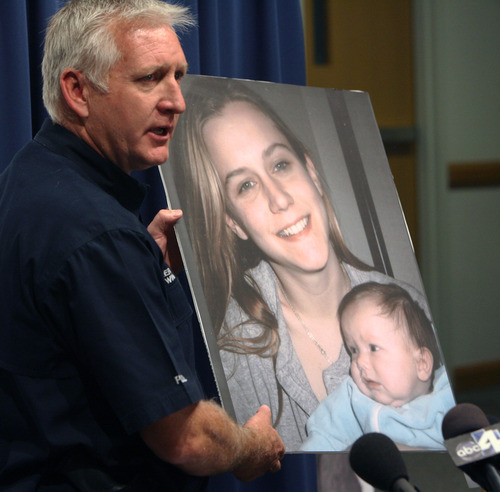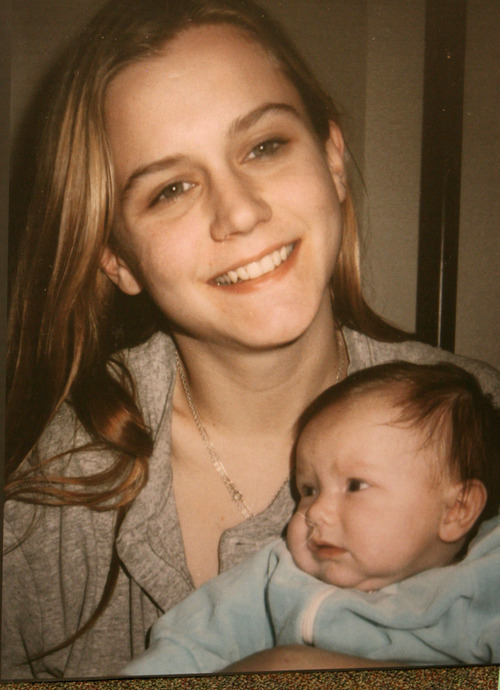This is an archived article that was published on sltrib.com in 2012, and information in the article may be outdated. It is provided only for personal research purposes and may not be reprinted.
South Salt Lake • They called her "Saltair Sally."
When duck hunters stumbled upon her badly decomposed remains in October 2000, she was 26 bones, a purple beaded necklace and an oversized T-shirt. She was a skull with waist-length hair and rotting teeth that had been scattered by natural predators.
She became a somber sketch, with no smile, history or real name. And over nearly a dozen years, she became a cold-case file.
On Tuesday, however, the Unified Police Department (UPD) announced new DNA testing had revealed Sally's true identity: Nikole Bakoles, a 20-year-old mother and, police say, a homicide victim.
"Someone took this beautiful young girl and left her out in the mud in Salt Lake County," Salt Lake County Sheriff Jim Winder said, holding a picture of Bakoles and her young daughter, Chloe, at an afternoon news conference. "We want to find out who did it."
Bakoles was last seen in March 2000 living with her boyfriend in a hotel near 3300 South and Main Street. She had fallen on hard times and had recently lost custody of her daughter.
But it wasn't until 2003 that her family reported her missing to police in Midvale, where she had previously lived, Unified police Lt. Justin Hoyal said.
"The family was concerned about her and had been doing their own investigation," he said. "She had lost her child, and the family thought she had just kind of separated at that point in time, upset about losing custody."
Unified police officials said they never linked the cases together because they did not know about the missing person case.
"We simply didn't have that particular piece of the puzzle," Winder said, "and didn't have it until 2011," after the Midvale Police Department merged with the Unified Police Department and the two began sharing records and resources.
Detective Todd Park, who handles UPD's cold-case investigations, said new technology developed by a University of Utah scientist helped narrow the focus of the investigation from Salt Lake City to the Pacific Northwest. Drinking water in different regions contains different levels of stable hydrogen and oxygen isotopes, which becomes recorded in the proteins in someone's hair, essentially creating a personal timeline and road map, said Utah professor Jim Ehleringer who helped develop the method in 2008.
"Throughout the years, we looked at, I'm going to say, 75 to 100 different people of who this could have been from across the country," Park said. "Once we had the information we were able to narrow that section of the country down, so we weren't paying as much attention to other leads that came out of Louisiana and Florida and places like that."
From there, Park worked backward to Bakoles' mother in Washington state. A positive DNA match came back last week, he said.
Now police have switched their focus to a homicide investigation.
Police would not discuss many specifics of the investigation Tuesday, but Park said where the remains were found and the items that were — and were not — with the body lead them to believe Bakoles was killed.
"I'm trying to put together timelines of what her last days were," Park said. "Where she was at, who she was with."
Park has questioned Bakoles' then-boyfriend, Joel Chaudoin, who is serving a sentence in the Washington State Prison for property crimes. But police said Chaudoin is not necessarily the focus of their investigation.
"At this point in time, everyone is a suspect in this case," Winder said.
Bakoles lived in the Salt Lake City community on and off for about three years and also traveled to the Northwest, police say. Anyone with information about Bakoles or Chaudoin are asked to contact the Unified Police Department at 801-743-7000.





